“Sleeping at night” becomes a luxury
11pm. The hospital has fallen asleep. The long corridors are filled with only the soft sound of slippers on the tiled floor. The lights in many areas of the hospital have been turned off. But in the Intensive Care Unit, the light is still shining brightly like a last bastion, a place that does not allow darkness and death to easily take over life. Every sound here is as tense as a guitar string. It is the steady beeping of the monitor, the whirring of the ventilator, or the sudden sound of an alarm… All of them can be a warning of a dangerous situation for the patient.
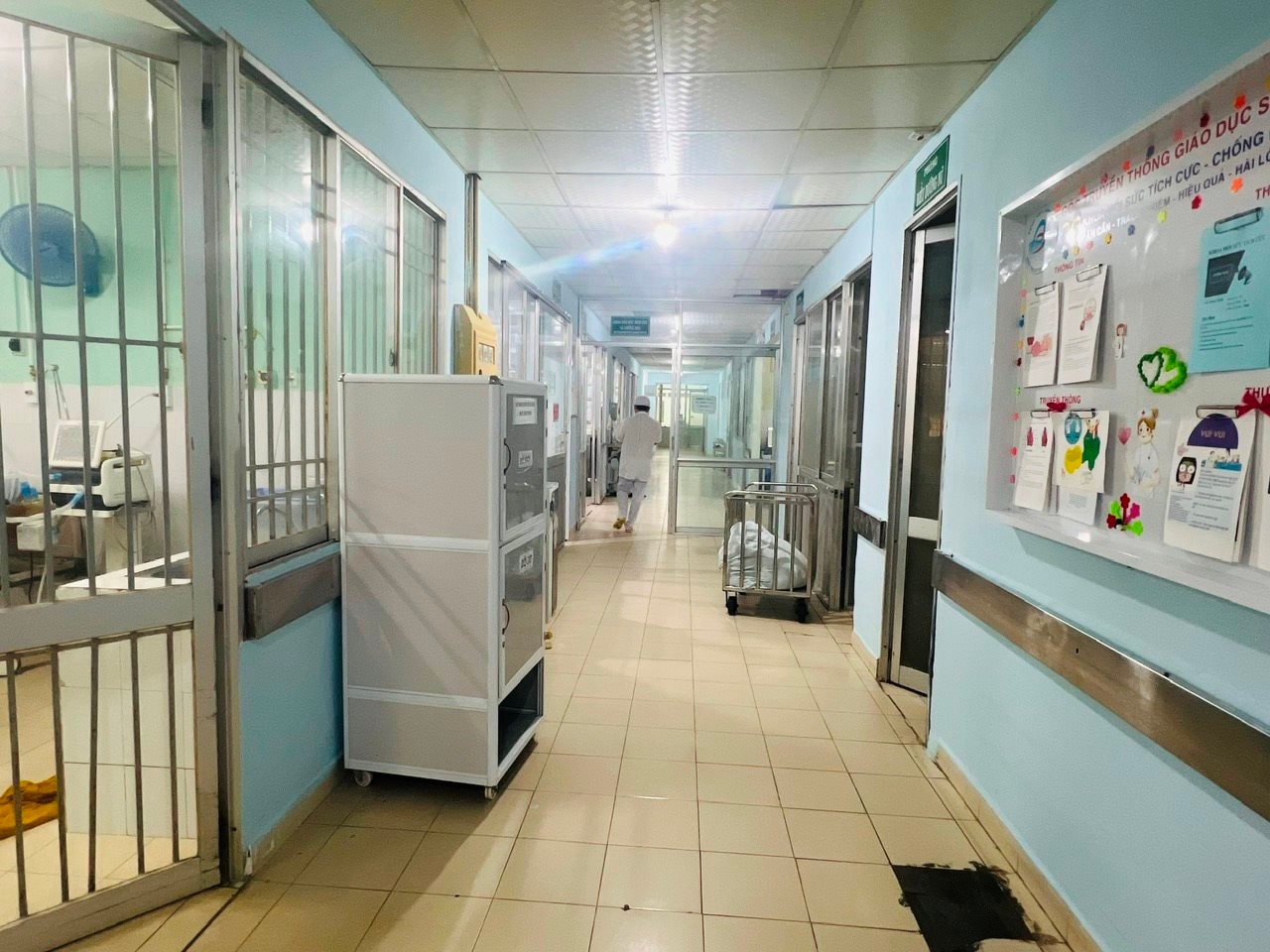
Tonight, Dr. Ngo Van Ba – Head of the Intensive Care Unit has his main shift again. His face is small, his eyes are dark after many years of working all-night shifts, but his eyes still shine with alertness. He has worked in the department for more than 12 years, and he can’t remember how many sleepless nights he has gone through like this.
“Actually, we don’t count the number of sleepless nights anymore. Because each night shift is almost sleepless,” he said, checking the patient monitoring chart.
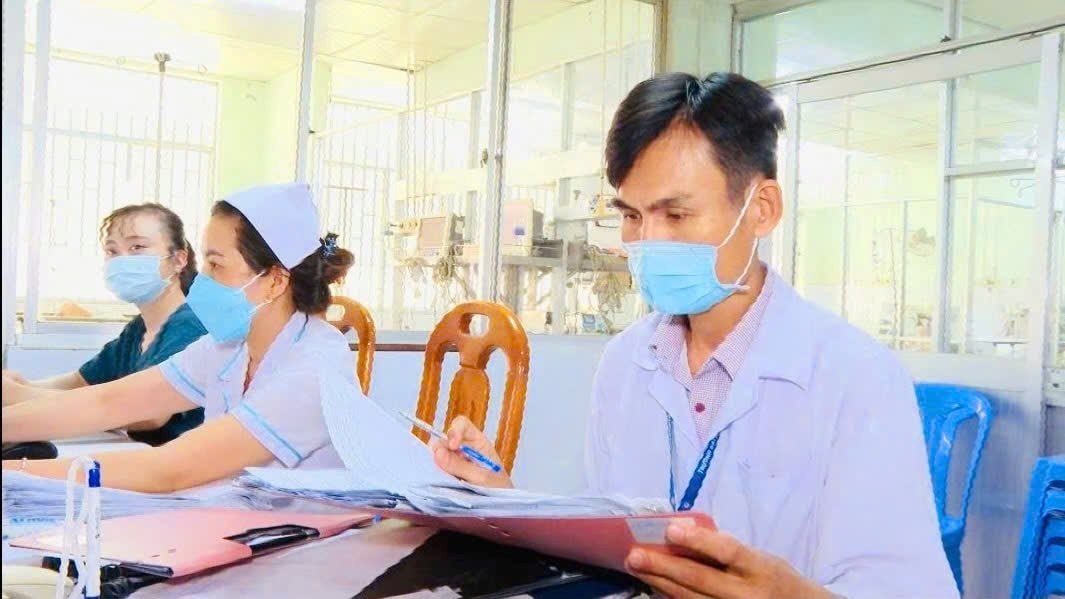
He added: The department currently has 25 beds but is currently using 27 beds because of the large number of patients. Tonight, 3 doctors and 6 nurses are on duty, just enough to operate a level 1 care department, which receives the most critical cases from the entire hospital and the district level. Most of the patients here have strokes, respiratory failure, multiple trauma, severe infections, etc. Many are being kept alive by ventilators.
Dr. Ba is like a silent conductor. He usually communicates only with his eyes or nods. Every move he makes exudes absolute concentration. “Here, mistakes are not allowed. You have to grasp the disease, closely monitor its progress, and coordinate every action. A minute of delay can cost a person their life,” he said.
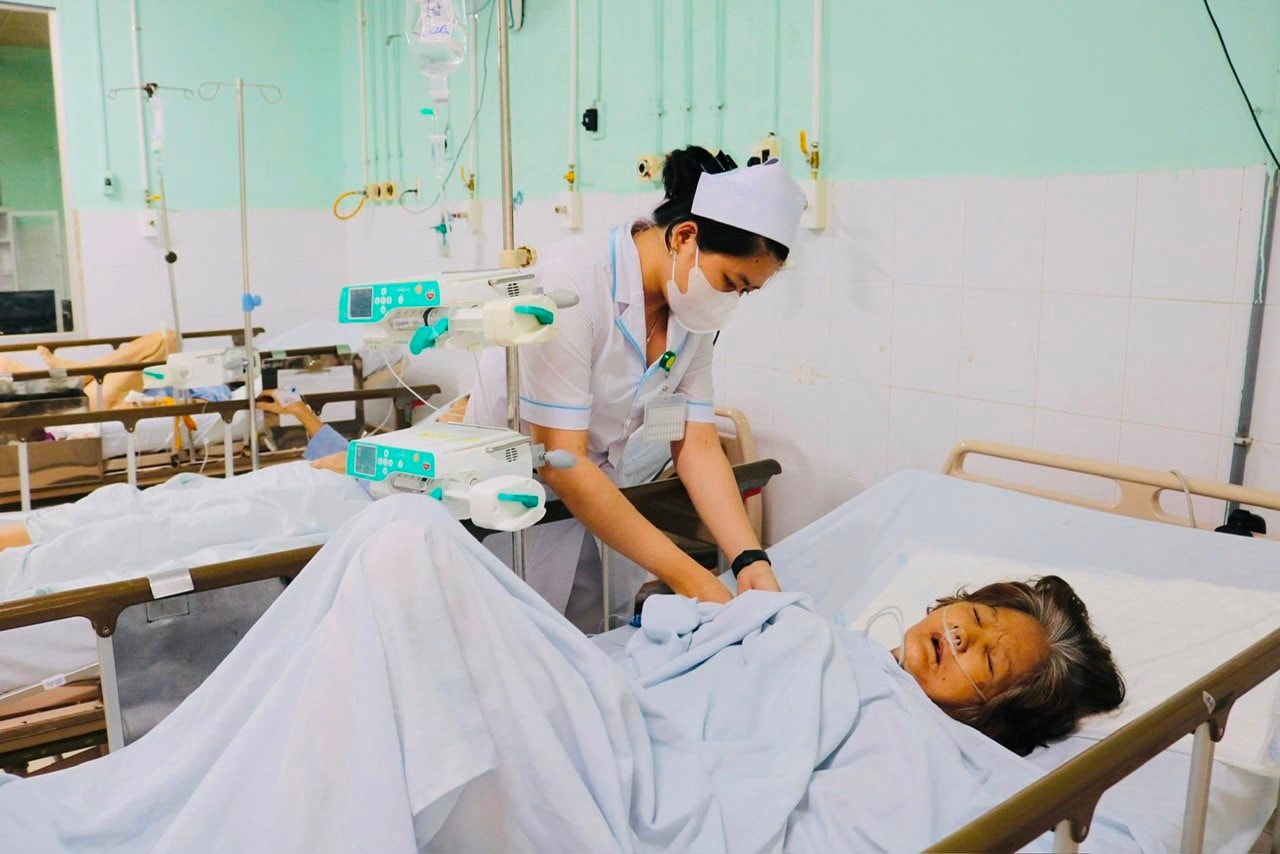
See patients as relatives
After midnight, in the midst of a stressful shift, nurse Nguyen Thi Tham still maintains her most optimistic working spirit. She has been with the department for 18 years, her hair tied neatly behind a medical cap, her eyes always keeping a warm look even though she is working in a stressful environment. "Each night shift is a battle, there are days when three or four patients change at the same time, we take turns monitoring the machine, taking care of them, and encouraging the patients and their families," she said.
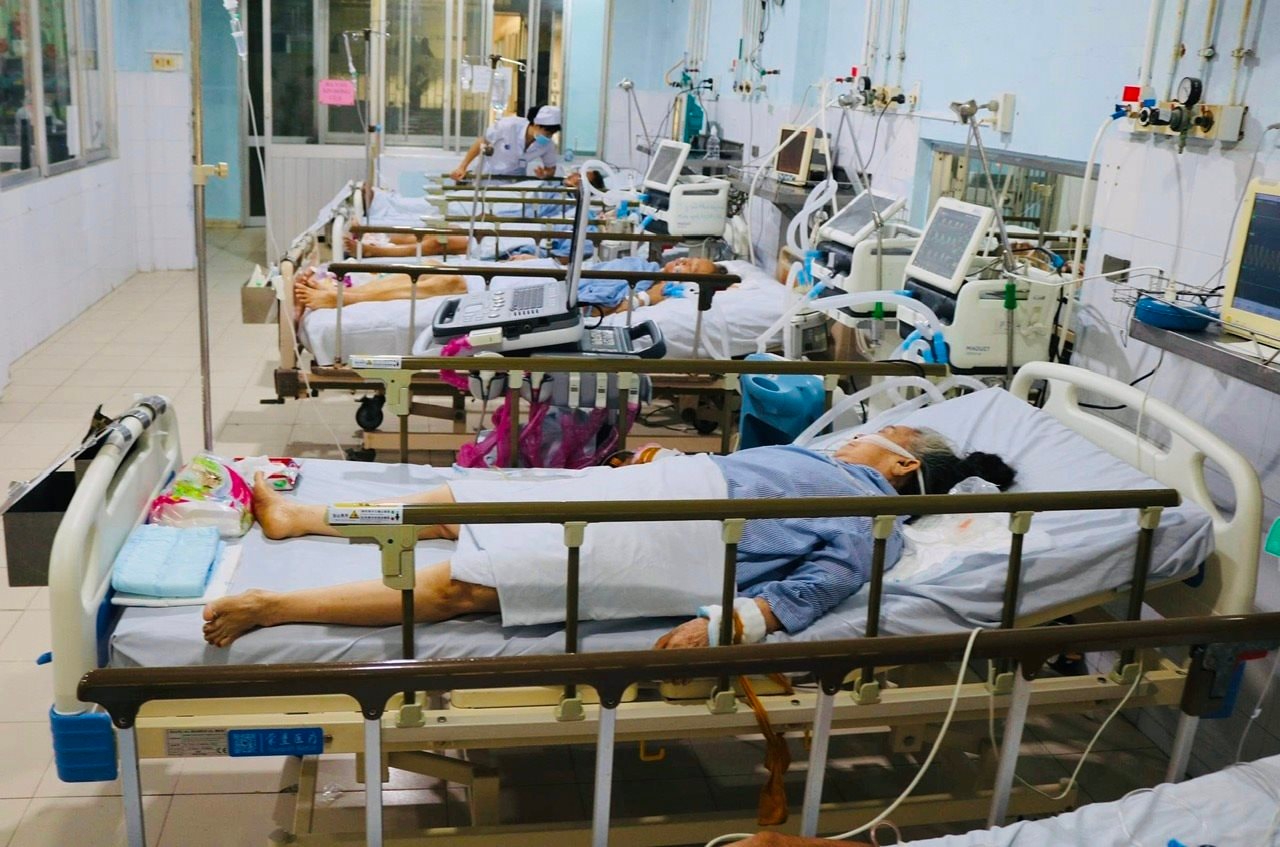
Day and night, in this department, patients spend most of their time lying motionless, all of their daily activities are completely dependent on the nursing team. "From eating, bathing, changing clothes, changing diapers... oh, there's so much, it would take up several hands to count. There's so much work that I just keep working and can't keep up," said Ms. Tham.
In the first days of entering this working environment, she was also bewildered and embarrassed because she had to clean up after others, but after doing it a lot, she became familiar with it. "I just think of patients as my relatives. The adults are about the same age as my grandparents and parents. The young are the same age as my siblings. Of course, I have to complete my work. But completing the work with joy is truly fulfilling," she said.
As she spoke, she bent down to ask a patient: "Miss, do you want more milk?", looking at the patient shaking his head, she turned to the patient opposite: "Let me change your diaper. You have to try hard to go home soon." Such conversations were of varying lengths, the conscious patients here mostly talked nonsense, the more seriously ill patients could only open their eyes and nod their heads towards the nurses. I wondered where Ms. Tham got so much energy from? As if understanding her thoughts, Ms. Tham added that those seemingly light words of conversation, to the immobile patient, were a whole warm world . "Not everyone can talk, but I believe everyone can listen. I talk to them so they know they are not alone," Ms. Tham said.
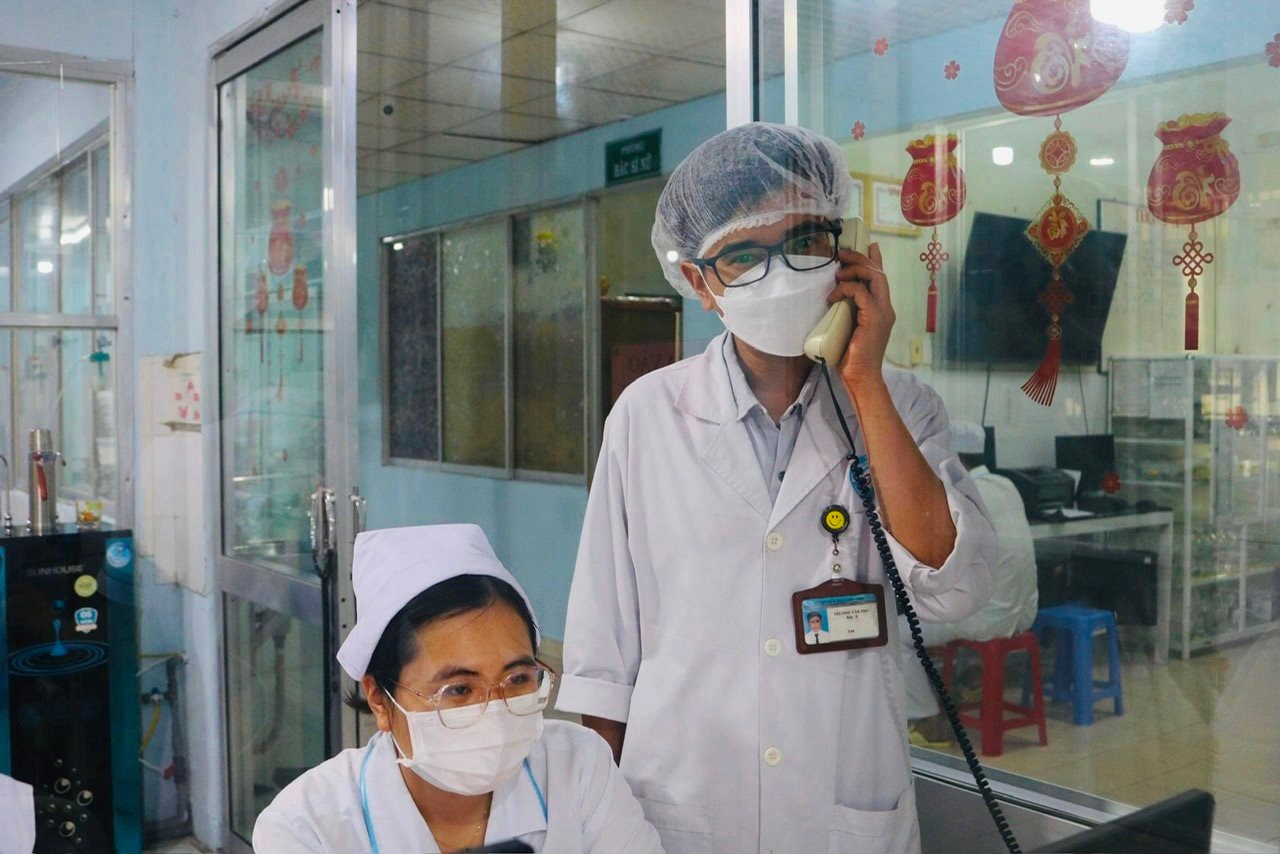
There have been many times when Ms. Tham stood in front of patients' families when they were worried and "sneaked" in to see their loved ones. Without scolding or chasing them away, with a gentle voice filled with understanding, she patted their shoulders, advised them to leave, and encouraged them to believe in the doctors and nurses. Night shifts are familiar to Ms. Tham, but never easy. She is the mother of two children, the older one in 8th grade, the younger one in 4th grade. Her husband is a police officer, and often works at night. Between work and motherhood, she chose to make silent sacrifices, like many other colleagues, women who silently shoulder two responsibilities.
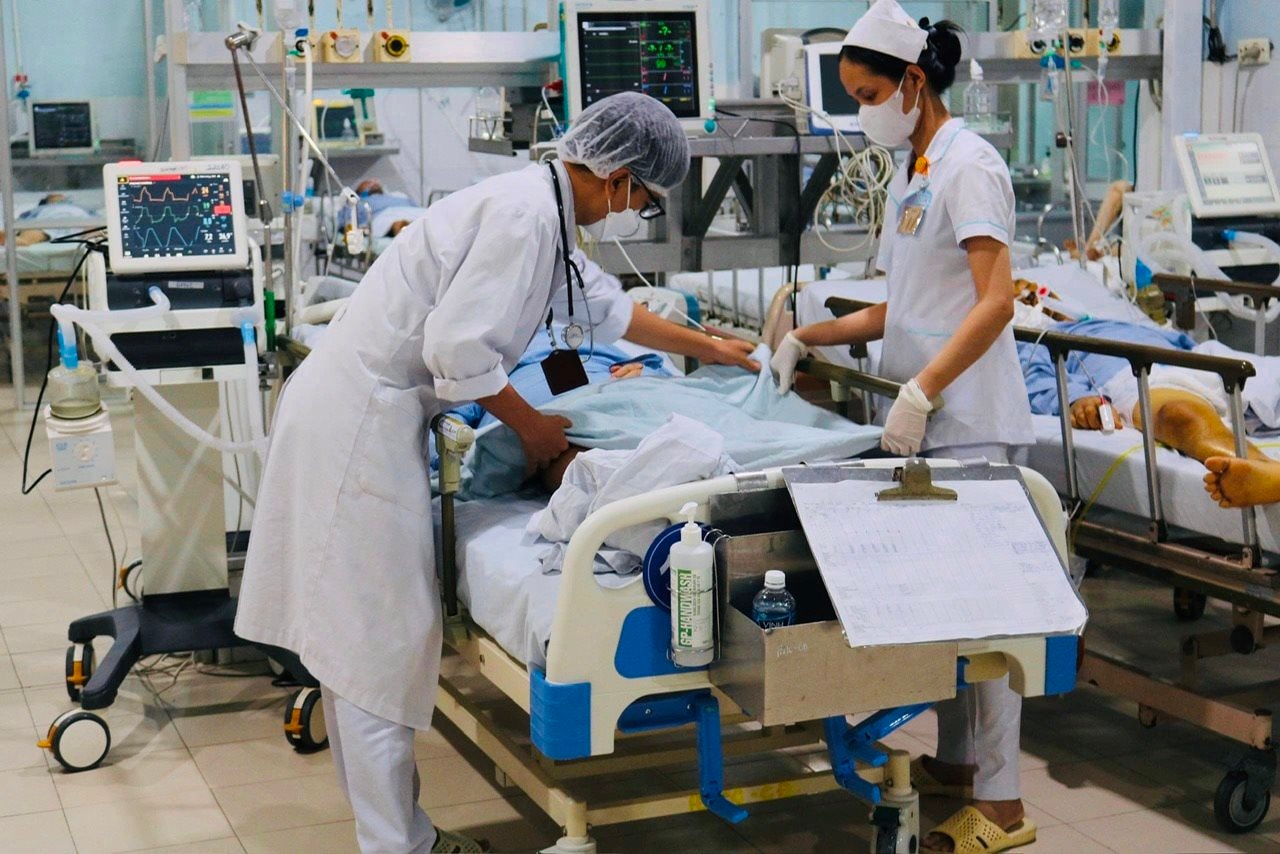
Rare and precious smiles
2:30 AM. In the corner of the room, Dr. Truong Van Thu picked up the phone because a patient was about to arrive. His face was thin but sharp, his forehead covered in sweat after many hours without leaving his patient's side.
Born in 1995, Dr. Thu is one of the young doctors in the department. He confided, “There were nights when I was on duty for 8 hours straight, not daring to lie down because a patient was on high-flow oxygen and his blood pressure was constantly fluctuating. There were also nights when I had just finished intubating a stroke patient, and before I could rest, another serious case was pushed in,” Dr. Thu recalled, then firmly affirmed, “There is no room for hesitation here. A second of delay means a life.”
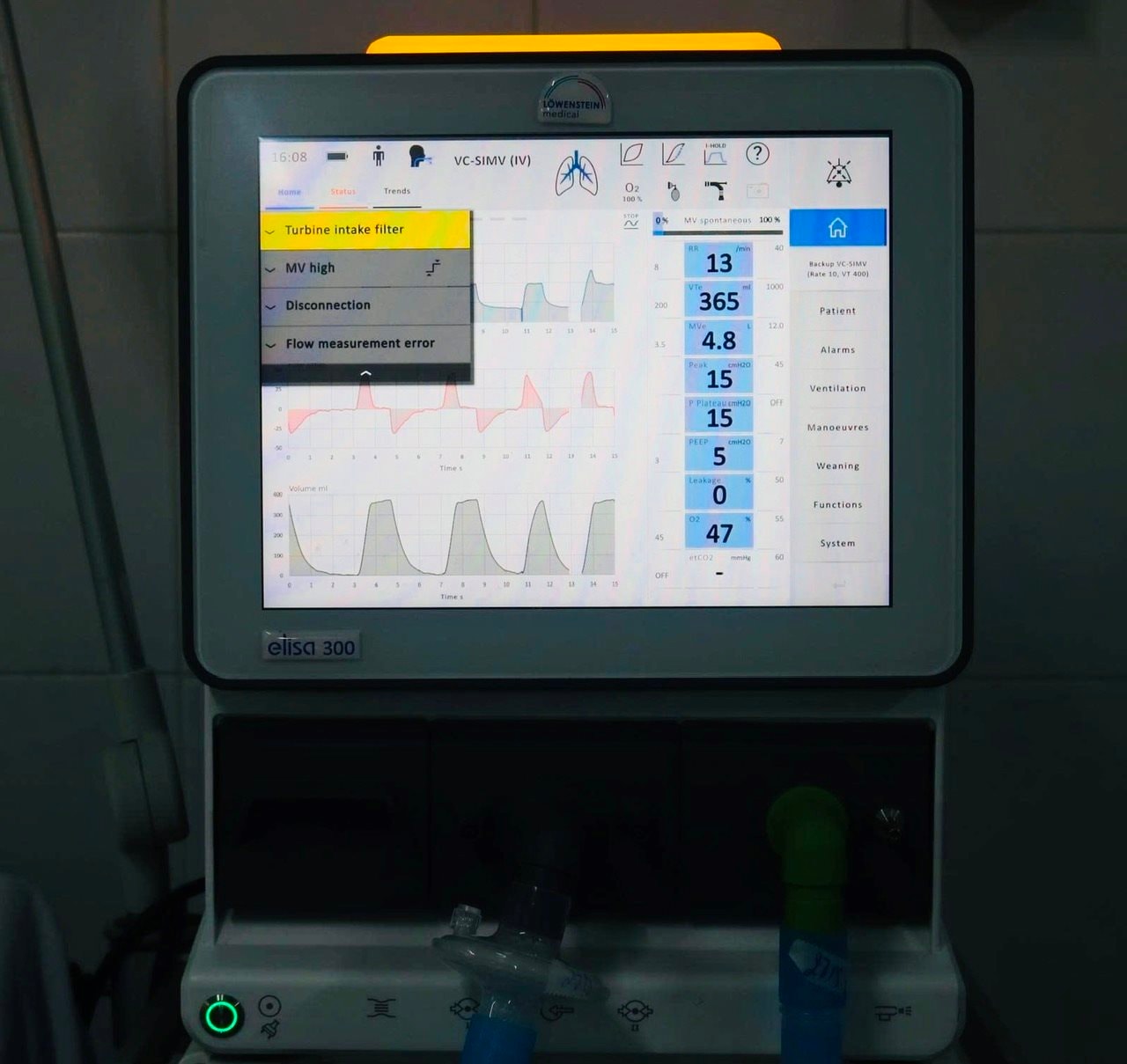
He said: “There are moments that are very real, very painful. That is what makes me not dare to be careless, not allow myself to be tired for too long. I choose to stay because I want to fulfill the role of a doctor, not only to save people, but also to give patients peace of mind.” Tonight, like every night, he quietly walked around the hospital room, checking each machine parameter. “The Intensive Care Unit is where I learned about life, through blood, tears, and hope” – his voice was firm.
3:30 a.m. The lights in the ICU were still on, the ventilator and monitor were still ringing steadily. Every step the doctors and nurses took was gentle, as if afraid to disturb the patient's fragile breathing. A patient began to wake up after being taken off the ventilator. Her sleepy eyes opened, weak but spirited. Doctor Thu leaned down and smiled: "Ma'am, can you hear me?" A slow blink was enough to make the entire team happy as if they had just won a fierce battle. "Smiles like this are rare, but precious. Every time we save a case, the whole room feels like it's filled with energy. And the patient knows that he's not fighting alone," said Doctor Thu.
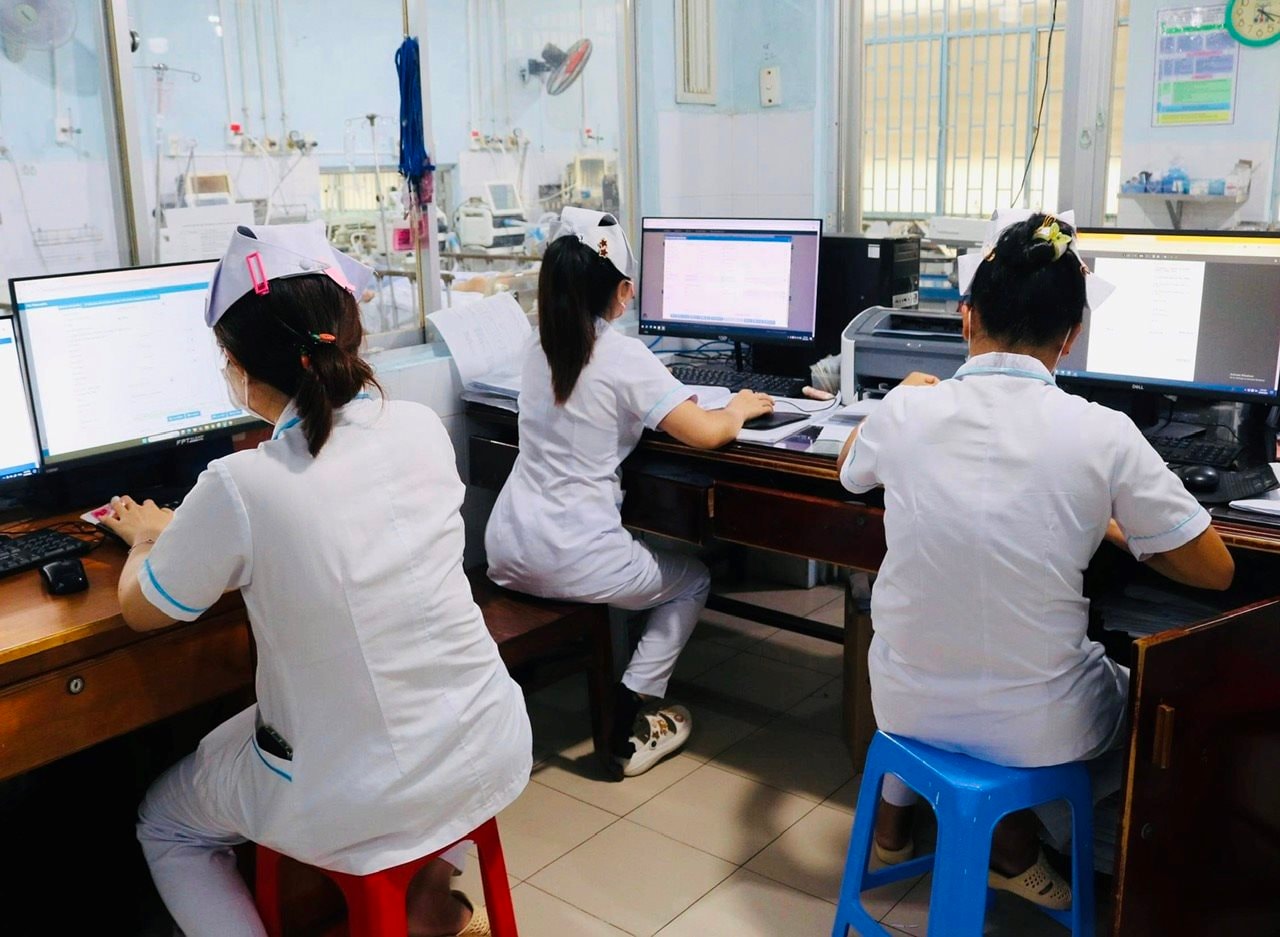
At around 5:30, the light of dawn began to filter through the frosted glass windows. A new day had begun for many people. But for the medical team here, the night was not really over. They still had to hand over shifts, update medical records, and prepare for the next emergency that could come at any moment.
As I walked out of the Intensive Care Unit, the hospital scene was gradually becoming bustling again in the distance. But I still remember Dr. Ba’s eyes when he said: “We are used to living in silence. We don’t need anyone to know our names, we don’t need anyone to remember our faces. Just knowing that we have contributed a small part to preserving life is enough.”
No car horns, no bright lights, just the sound of ventilators and sleepless eyes. In the middle of the night in the Intensive Care Unit, the team of doctors and nurses still steadfastly maintain their sense of responsibility, spreading the beautiful image of a dedicated doctor, ready to sacrifice for the lives of patients.
Source: https://baobinhthuan.com.vn/dem-trang-noi-tuyen-cuoi-130713.html









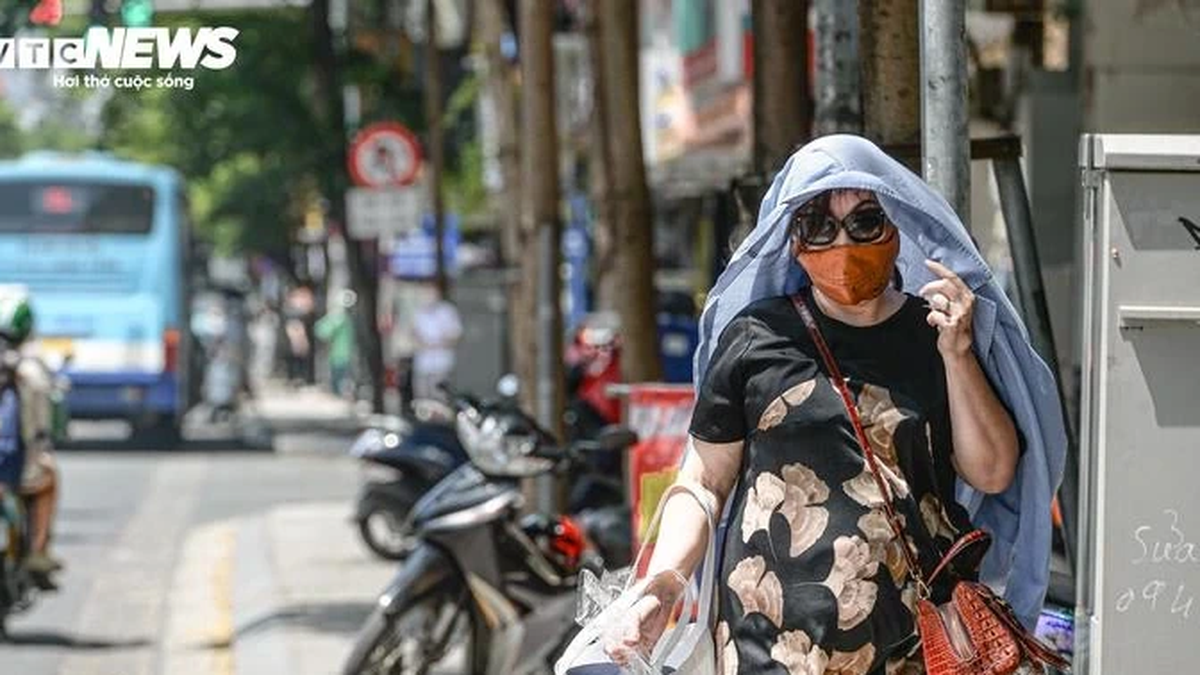













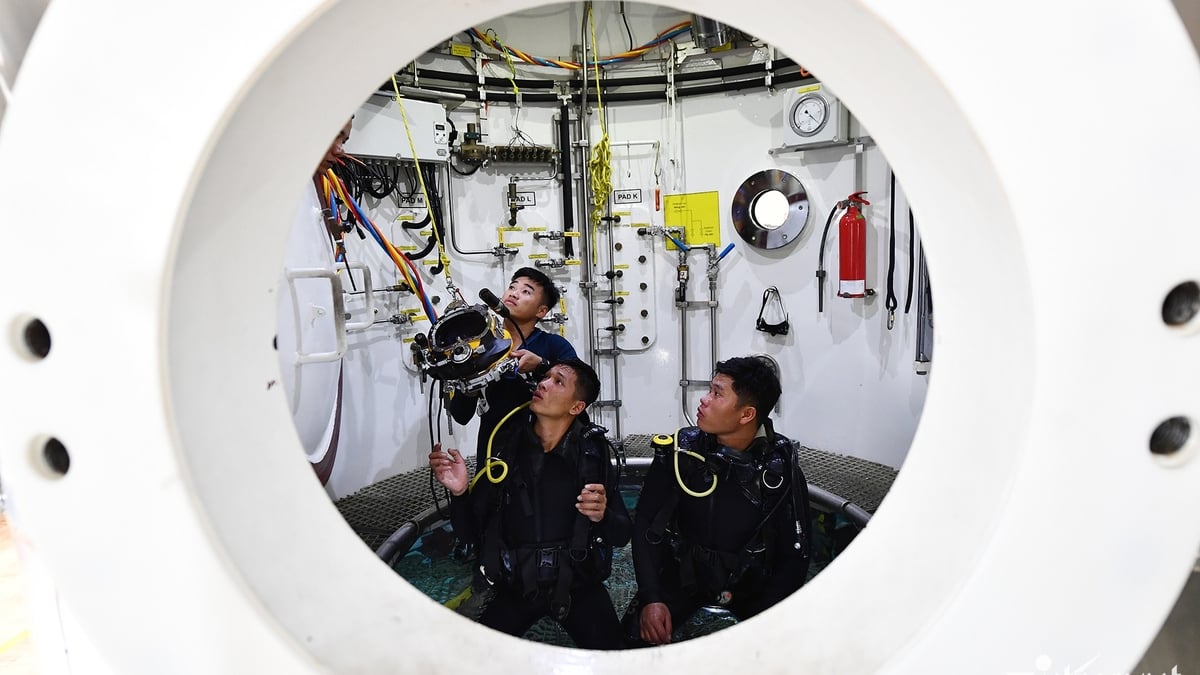










































































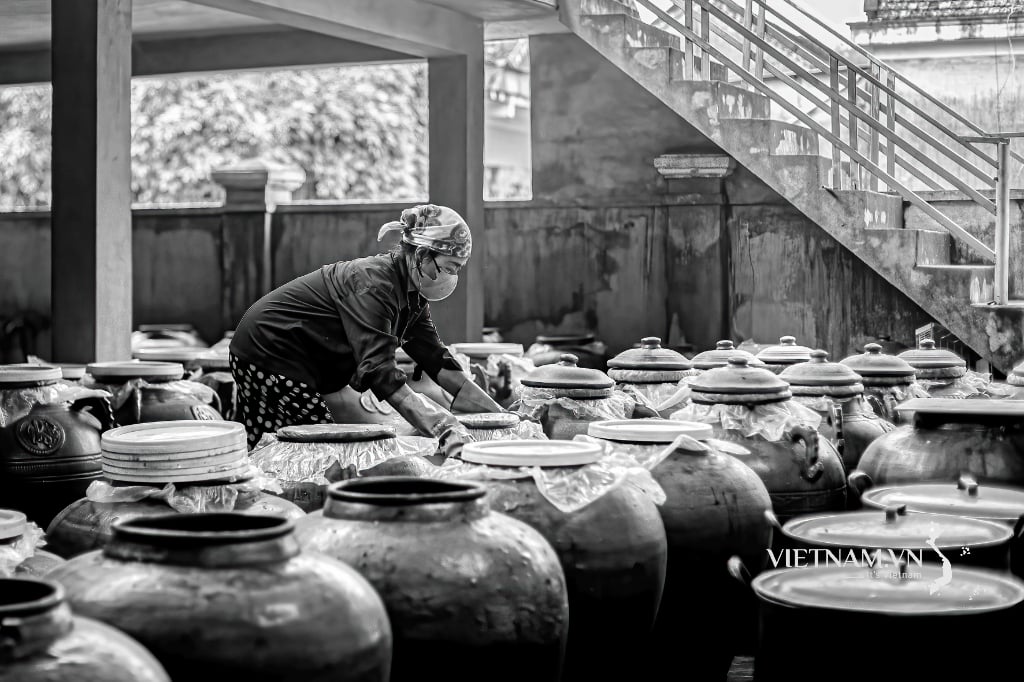

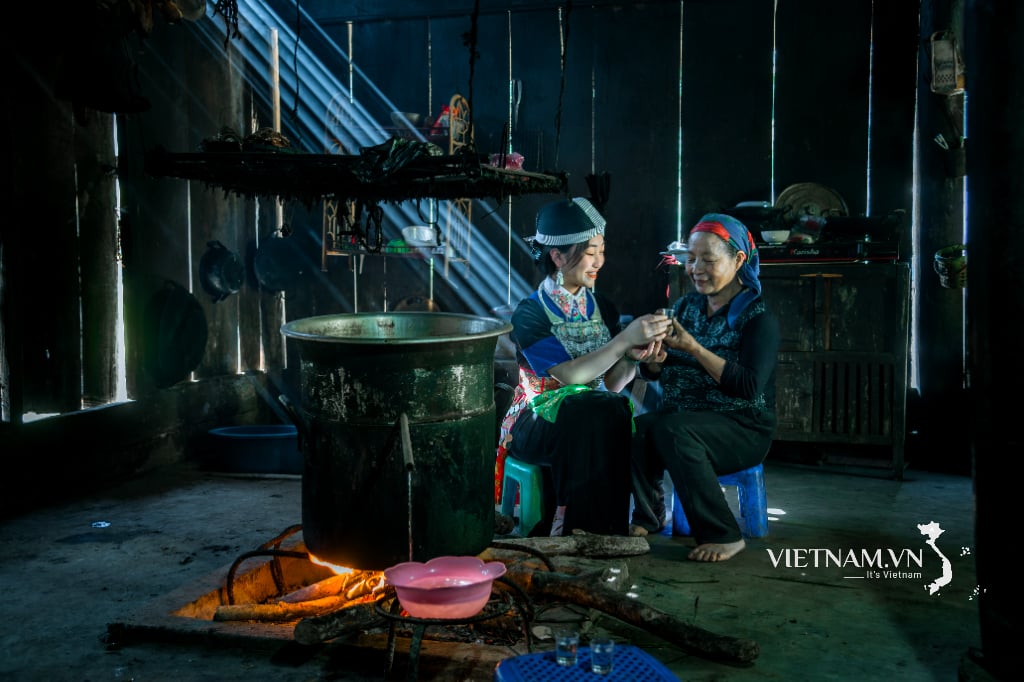
Comment (0)